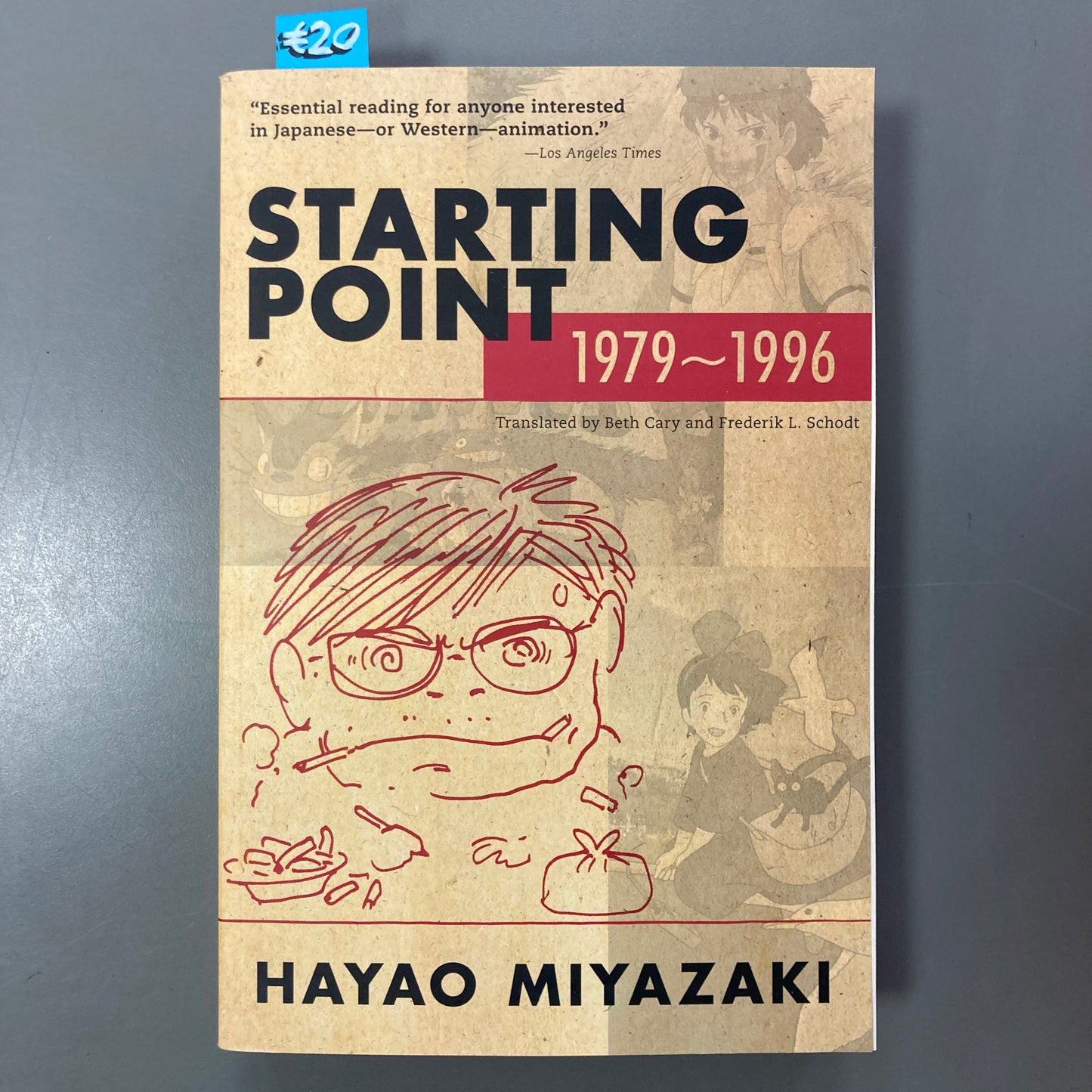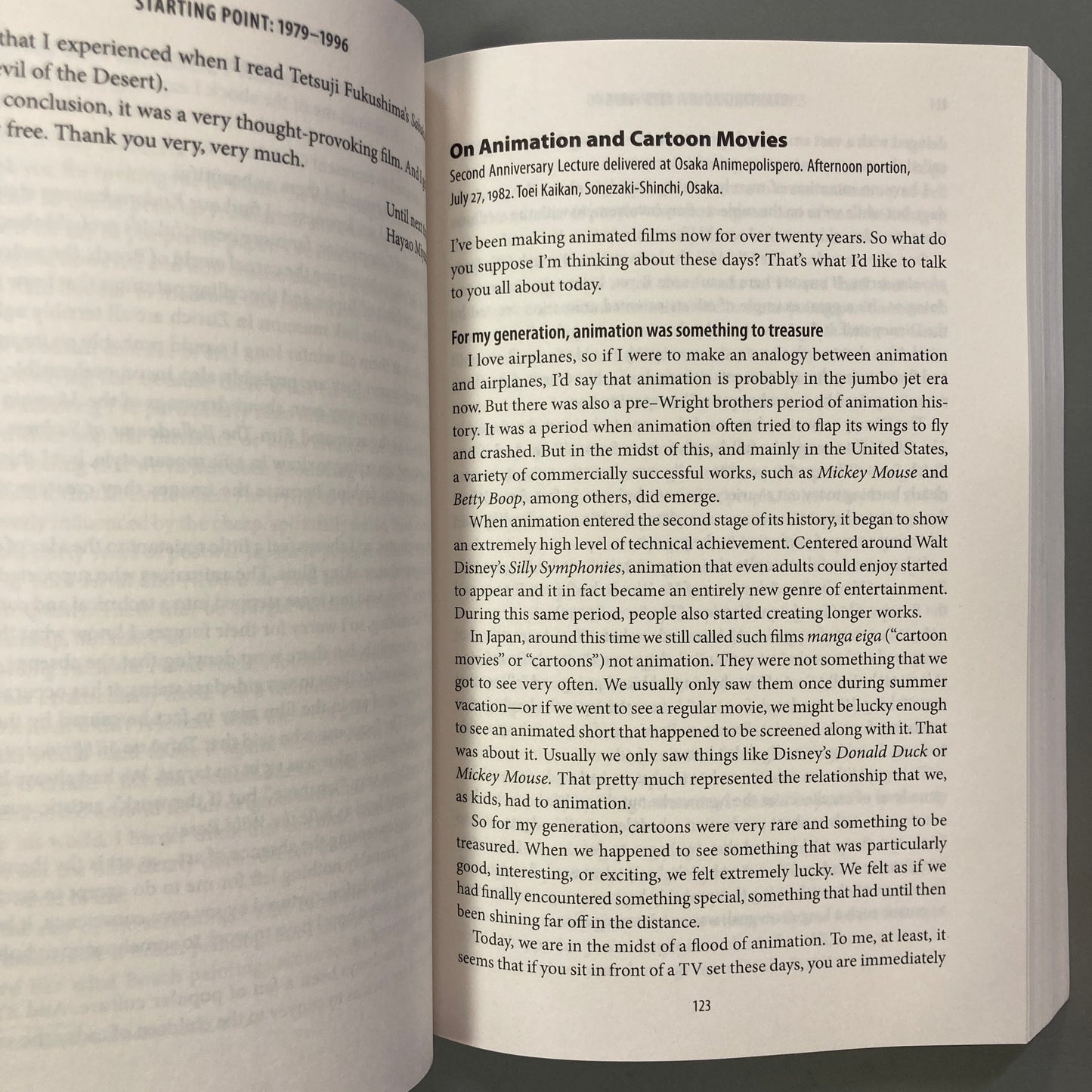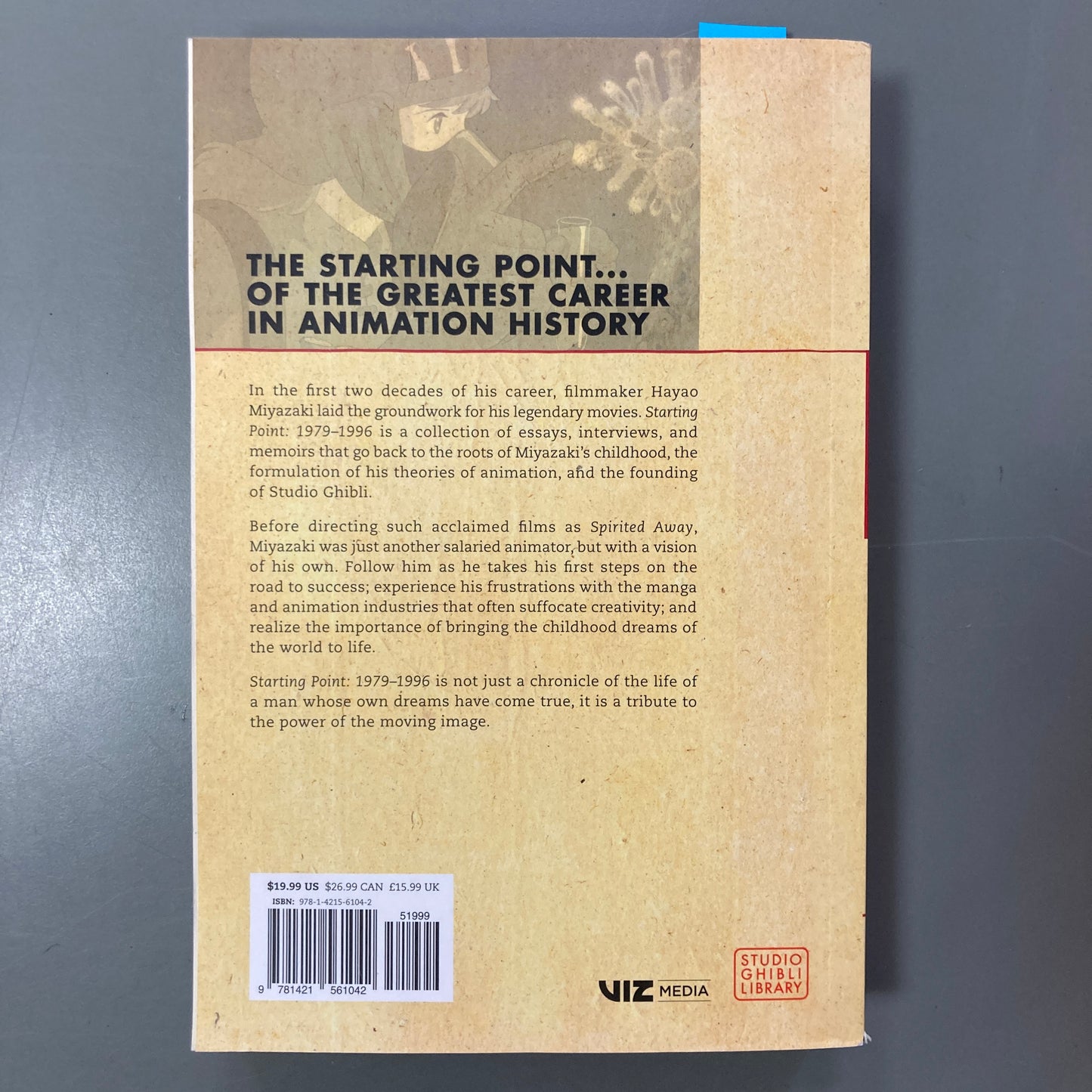Starting Point, 1979-1996
Starting Point, 1979-1996
Couldn't load pickup availability
By Hayao Miyazaki. Published by Viz Media.
Softcover, 462 pages, Text with B&W and Colour Art, 2014
Japan's most popular filmmaker speaks on life, love, and the world of anime.
The Starting Point...of the Greatest Career in Animation HistoryIn the first two decades of his career, filmmaker Hayao Miyazaki laid the groundwork for his legendary movies. Starting Point is a collection of essays, interviews, and memoir that go back to the roots of Miyazaki's childhood, the formulation of his theories of animation, and the founding of Studio Ghibli.Before directing such acclaimed films as Spirited Away, Miyazaki was just another salaried animator, but with a vision of his own. Follow him as he takes his first steps on the road to success, experience his frustrations with the manga and animation industries that often suffocate creativity, and realize the importance of bringing the childhood dreams of the world to life.Starting Point: 1979-1996 is not just a chronicle of the life of a man whose own dreams have come true, it is a tribute to the power of the moving image.
In the first two decades of his career, filmmaker Hayao Miyazaki laid the groundwork for his legendary movies. Starting Point is a collection of essays, interviews, and memoirs that go back to the roots of Miyazaki's childhood, the formulation of his theories of animation, and the founding of Studio Ghibli.
Before directing such acclaimed films as Spirited Away, Miyazaki was just another salaried animator, but with a vision of his own. Follow him as he takes his first steps on the road to success, experience his frustrations with the manga and animation industries that often suffocate creativity, and realize the importance of bringing the childhood dreams of the world to life.
Starting Point: 1979-1996 is not just a chronicle of the life of a man whose own dreams have come true, it is a tribute to the power of the moving image.







